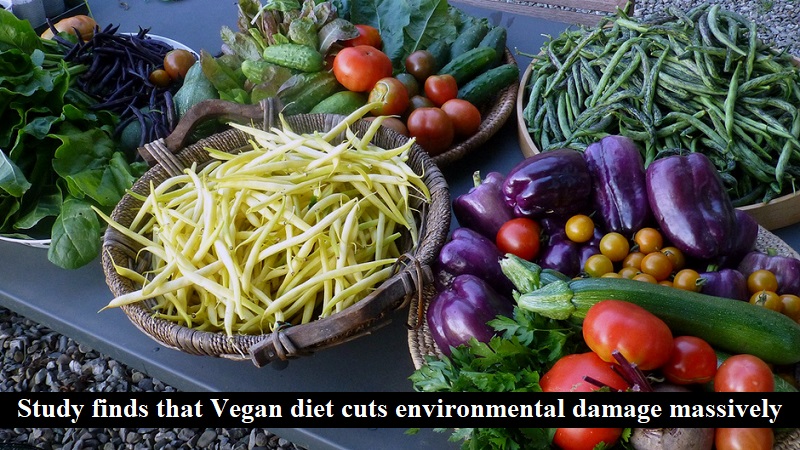
A recent study has shown that embracing a vegan diet can have a tremendous positive impact on the environment, leading to significant reductions in climate-heating emissions, water pollution, land use, wildlife destruction, and water consumption.
The research, which examined the actual diets of 55,000 individuals in the UK and data from 38,000 farms across 119 countries, presented compelling evidence supporting the environmental advantages of vegan diets.
Professor Peter Scarborough of Oxford University, who led the research, explained that our dietary choices wield a considerable influence on the planet, and reducing meat and dairy consumption can substantially lessen our dietary footprint.
The study found that adopting a vegan diet resulted in an astounding 75 percent reduction in climate-heating emissions, water pollution, and land use compared to diets that included over 100g of meat daily.
Additionally, vegan diets led to a 66 percent decrease in wildlife destruction and a 54 percent reduction in water usage, as reported by the Guardian.
Unlike previous studies that relied on theoretical diets and average values, this research utilized real diets, providing a more accurate depiction of the environmental impact.
The findings highlighted that the types of foods consumed had a more significant effect on environmental impacts than their production methods or locations.
Even low-impact meat, such as organic pork, was found to cause eight times more climate damage than high-impact plant foods like oilseed.
Experts underscore the importance of dietary choices in reducing our environmental footprint and suggest encouraging individuals, particularly high meat-eaters, to reduce their meat and dairy consumption to help achieve climate targets.
The study emphasized the need for policies that promote a shift towards sustainable diets, especially in wealthier nations, where substantial reductions in meat and dairy consumption are necessary.
The research also revealed a substantial difference in methane emissions, a potent greenhouse gas produced by cattle and sheep. Vegan diets demonstrated a remarkable 93 percent lower methane emissions compared to high-meat diets, further accentuating the environmental benefits of plant-based diets.
Experts stress the urgency of adopting sustainable food production practices and suggest labeling foods to indicate their environmental impact, regulating promotions, and taxing high-carbon foods. While individuals play a crucial role in making dietary choices, policy support and innovative agricultural practices are indispensable for achieving sustainable food production.
The UK government advocates for independent food choices among individuals while recognizing the significance of reaching the net-zero target. The farming minister has expressed interest in exploring genetically modified cows that emit less methane as a potential solution.

Post Your Comments